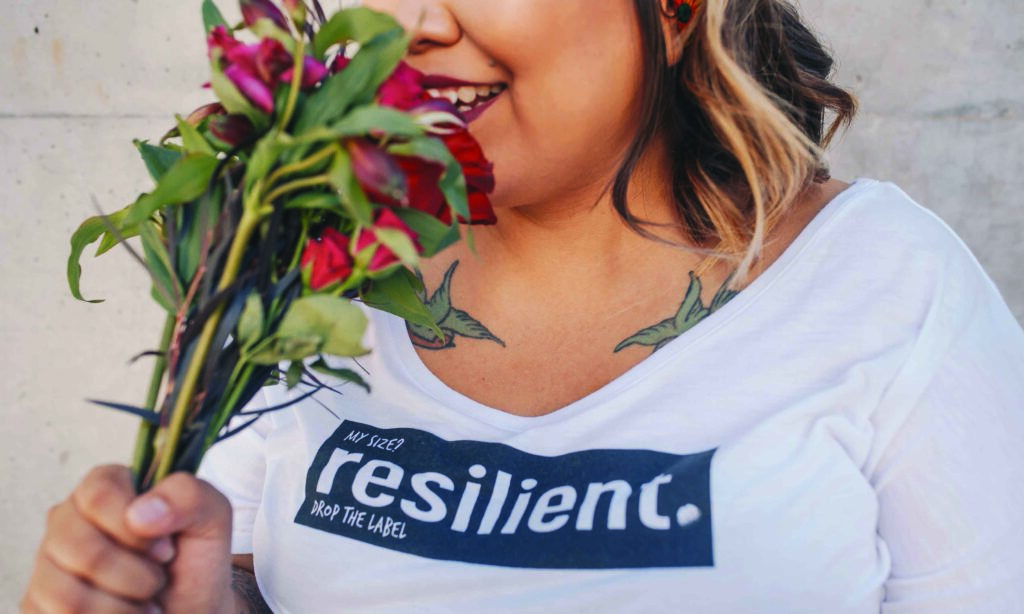Advertisement
#BoPo
Riding the body positive wave, while staying healthy

Advertisement
Body positivity has swept the nation.
Self-acceptance of our bodies, even if we don’t match cultural size ideals, has evolved into a massive movement. Instead of obsessing over “imperfections,” social media mavens, celebs, movies, and writers are worshipping cellulite, celebrating their skin colour, and embracing their natural size and shape.
And so, for the first time in many of our lives, we’re enjoying and admiring the parts of our bodies we used to feel ashamed about. Research supports the notion that these influences are good for our emotional health. For instance, a 2019 study found that briefly viewing body-positive Instagram posts was associated with improvements in body satisfaction, body appreciation, and a positive mood, when compared with exposure to thin-ideal and appearance-neutral posts among the 18- to 30-year-old women studied.
In 2016, the American Psychological Association found that women have become less dissatisfied with their bodies within the past 30 years. The study’s authors thought that media portrayals of body appreciation and diversity could be partially responsible for this gradual upswing in body satisfaction.
The same APA study showed that male body satisfaction remained the same over the years, with another study estimating that 30 percent of men experience body dissatisfaction. This is not surprising, since the body positivity movement has been female-focused. However, some male influencers have begun to emerge—@itsminagerges and @kelvindavis, for instance.
This great news may leave you forgetting to question: could there be too much of this good thing?
Advertisement
Too much love?
Take it from social media influencers such as (formerly) 379-pound fat acceptance fashionista Maui Bigelow: accepting yourself as you are can be a wonderful feeling—but your health still must come into play.
In 2017, Bigelow was diagnosed with blood cancer and multiple uterine fibroids. This drove her to undergo weight-loss surgery, the only way she could receive treatment for these conditions.
Aishah Muhammad, UK-based MD and personal trainer (thewaytoweightloss.com) is concerned that some followers of the movement might face health issues as well.
“I worry that the body positivity movement is shutting down healthy discussions around the idea that a raised BMI or body [build] puts some people at risk of a whole host of problems like cardiovascular disease, cancer, and inflammatory problems,” says Muhammad. “This is not to say someone large will get these, but there is research that demonstrates there are links between body size and disease,” says Muhammad.
Muhammad says she comes across influencers promoting body positivity while encouraging followers to eat junk food and stay inactive as part of the body positive lifestyle.
“[This] can be misinterpreted to mean eating unhealthy foods is okay,” opines Muhammad. “Everyone should have a choice and can live their life how they want. However, they should be aware of the risks that may come with some of their choices.”
Muhammad says having a positive attitude toward your body should include eating nutritious food and exercising. She adds that, if someone wants to lose weight safely, she also hopes the movement doesn’t pressure women into not thinking about their weight.
Advertisement
How you see yourself—beyond your mirror image
Kyla Fox, clinical therapist and owner of the Toronto-based Kyla Fox Centre, which specializes in helping patients suffering from eating disorders and/or related mental health issues, believes beauty comes “from within.”
“Beauty is about living—really living,” says Fox. “And the way that I best determine beauty is by how alive, passion-filled, and honest someone is. That’s what I mean by ‘from within’; it shows all over when it’s happening internally.”
According to Fox, becoming comfortable in our own skin is being okay with who we are—and who we are not—and we earn this comfort over time through personal growth. This can look like learning to say no, developing the ability to use our own voice, not being afraid of what we want, moving through times in which we feel broken, and having experiences that lift us high.
Following positive body-positive role models on social media, then, can likely enhance this sense of self and may even (depending on who we follow) help us realize that what we look like is merely one aspect of our self-image.
Further, Fox believes the movement may help young girls, who are often particularly vulnerable to developing a poor body image, to “more easily and unapologetically find and carve out a space for themselves” through showing the diversity of humans in a more honest and empowering way.
As for the rest of us?
“Our sense of self is expansive when we’re in the company of people and things that help us to feel competent, challenge us to learn, and push us to be our best selves,” says Fox. “Positive role models have paved the way for what is possible for everyone.”
Advertisement
Social media’s “perfect” bodies—causing naturists to cover up?
Naturism, the practice of nonsexualized nudity, has been shown to improve body image, according to one 2017 study.
“[Naturist activities] may reduce dissatisfaction with one’s body through exposure to non-idealised bodies, or positive (or even neutral) feedback about one’s own body,” states Keon West, the author of the study.
Recently, social media might have had a role in the flagging popularity of naturism in some countries.
In a Guardian article, Christian Utecht, president of the Association of Free Body Culture for Berlin and Brandenburg, says that naturist movements in Germany have seen drops in membership partially because members feel the need to have a perfect body, a desire fuelled by idealized bodies portrayed on social media.
On the other hand, Andrew Welch, national spokesman of British Naturism, agrees that while images of idealized bodies have hampered the progress of naturism, social media has also allowed naturists to reach more people and educate them on what naturism is really about. “Social nudity is about how you feel, not what you look like,” explains Welch.
Hashtags of a revolution
As of September 2019, there were 17,000 posts with the hashtag #boporevolution, 3.5 million posts with #bodypositivity, and even some with #malebopo (1,000+ posts), #bopoballerina (500+ posts), and #bopoyoga (1,000+ posts).
Freelance writer and law school student Carimé Lane credits the body positive movement for dramatically improving the way she sees her body, especially @thebirdspapaya and @ownitbabe.
A version of this article was published in the January 2020 issue of alive Canada with the title “#BoPo.”





